-
 Make the Miraculous Neem Oil a Part of Your Daily Life: Discover the Numerous Uses of Neem Oil and How It Can Give You a Radiant Skin, Lustrous Hair and Overall Health and Wellbeing! (2021)
Make the Miraculous Neem Oil a Part of Your Daily Life: Discover the Numerous Uses of Neem Oil and How It Can Give You a Radiant Skin, Lustrous Hair and Overall Health and Wellbeing! (2021)
-
 Is Your Skin Looking Dull and Lifeless? Follow Our Skin Care Tips and Adopt These 5 Healthy Habits and Watch Your Skin Glow Vibrantly (2020)
Is Your Skin Looking Dull and Lifeless? Follow Our Skin Care Tips and Adopt These 5 Healthy Habits and Watch Your Skin Glow Vibrantly (2020)
-
 Hair Fall: Causes, Home Remedies and Prevention! 10 Home Remedies for Hair Fall You Can Try Safely at Home!
Hair Fall: Causes, Home Remedies and Prevention! 10 Home Remedies for Hair Fall You Can Try Safely at Home!
What is a Panic Attack?
If you ever had a feeling of having a heart attack or feel like you are breaking down and have nowhere to go or if you felt like you can't breathe or you might be dying then you might have had a panic attack. Panic attacks are quite normal and almost everyone feels once in their lifetime once. Although no one really knows the exact cause of a panic attack it is believed that it may happen due to various reasons.
A panic attack could be a symptom of an anxiety disorder but it has been in existence since the ancient civilization. It is documented to be the reaction of the subjects of Ramses II to his death in 1213 BC in Egypt and also in Greek mythology when people saw Pan, the half-man, half-goat god of flocks and shepherds. It is also connected with Renaissance Europe where severe anxiety was grouped with depression called melancholia. Later in the 19th century, the symptoms of panic were known as neurosis. The word panic came into being in psychiatry then onwards.
What Exactly is a Panic Attack?
It is nothing more than a feeling of fear or nervousness which comes suddenly to a person. It usually comes without a warning and makes a person feel that they are in danger or a life-threatening situation. They don't last for too long but are quite intense. They bring in feelings of emotional, cognitive and physical harm. During a panic attack a person might experience cold sweats, shaking and chest pain, they also feel that they are losing control over their mind and body which is terrifying. These symptoms trigger the fight or flight response in a person causing extreme confusion and mostly emotional pain.
What Causes a Panic Attack?
There are several factors which can cause a panic attack. It is believed that it runs in the family. It may also come due to major life transitions like getting married, joining a new workplace, having a baby, going through a bad phase in life, death of a loved one, divorce or severe stress. A person may experience a panic attack due to medical conditions or physical causes like Hyperthyroidism (overactive thyroid gland), Hypoglycemia (low blood sugar), Stimulant use (amphetamines, cocaine, caffeine) or Medication withdrawal.
If you experience a panic attack more than once then you might have a panic disorder. A panic disorder may be the cause of fearing a panic attack which leaves a person very unconfident and afraid all the time. If you have experienced a panic attack more than once then you should consult a doctor as there are treatments you can take to feel better.
Symptoms of a Panic Attack
Panic attacks may come at any age and time and usually are harmless but they do feel awful. They come without a warning and can come while you are shopping, driving or even sleeping. Different people feel differently when experiencing a panic attack but there are some common symptoms that you should know to be prepared for one.
Some of the symptoms of a panic attack are when you feel that you are in danger or doomed, if you feel you are losing control or might even die, you may also hear your heart pounding within your chest and you start to sweat. You may also start to shake or tremble without any reason, you also might not be able to breathe or talk. Some people experience chills and some get hot flashes. You may also feel nauseous and pain in the abdomen. Some people complain of having severe headaches and lightheadedness or even faint. People also feel depressed or detached with the world or the people they love. Almost everyone who has experienced a panic attack share that their worst fear is of having another episode in public or when they are alone.
Diagnosis and Treatment for Panic Attacks
It is important to consult a doctor if you experience a panic attack more than once. The doctor will be able to determine if you have 5experienced a panic attack or if you have panic disorder. They will also be able to figure out if you have other medical conditions like heart issues or thyroid problems which are very much like a panic attack. When you visit a doctor they will make you undergo a complete physical examination. They will also check your blood for thyroid; they might ask you to get an ECG or EKG done to see if you have a healthy heart.
You might be recommended to go through a psychological evaluation where you will be tested for your symptoms like stress, relationship issues or family history. You will also have to answer questions related to substance abuse. Remember that not everyone who has gets panic attacks will have panic disorder, the Diagnostic and Statistical Manual of Mental Disorders (DSM-5), published by the American Psychiatric Association have listed the following points to determine if you have panic disorder.
They will assess you by figuring out
- If you have frequent panic attacks
- If these attacks have been followed by one month or more where you have been in constant fear of having another one.
- If they are caused by drugs or substance abuse or due to other medical issues.
- They will also check to see if you have problems like social phobia or obsessive compulsive disorder.
After a thorough examination if it is found that you get panic attacks but do not have panic disorder then you can easily get treatment and prevent it from turning into a panic disorder.
Treatment Options
For treatment, your doctor might send you to a counsellor to help you cope up with any emotional issues you might be having where you will have to sit with a counsellor and undergo a 'talk therapy'. It will help you determine the triggers of panic attacks and how to avoid them. These sessions will also help you understand that panic attacks do not cause any bodily harm and will go away if taken care of. They will teach you relaxation techniques like controlling your thoughts and breathing during an attack. The doctors might also prescribe some relaxation medications so help you relieve your stress and avoid a panic attack.
How to Help Someone During a Panic Attack?
If you are worried about how to help someone who has panic attacks then the following tips will help you with it. Remember when a person experiences a panic attack they get very anxious and scared and are not able to think clearly. This is the time to be by their side and help them cope with it.
- You start by just being with them, ask them if there is any medication that they usually take during a panic attack, don't act on your own doing what you think might help them instead ask them what you can do for them to help them feel better. Talk to the person in short and clear sentences. Be gentle with them and remember to be predictable, you would not want to startle them during a panic attack.
- Help the person in controlling their breathing by breathing with them, the best way to do is to ask them to count till 10 and breathe. You can talk to the person and tell them that this will pass, tell them that they are doing a good job or ask them what they need. Tell them to concentrate on their breathing, tell them that they might feel scared but they are not in any danger.
- If you are helping a person during a panic attack you need to remain calm. If you panic with them you can make the situation even worse. A panic attack may reach its peak within 10 minutes therefore you will have to act fast to help them alleviate the symptoms and make them feel better.
- Keep talking to the person and use positive affirmations. When you speak to a person who is having a panic attack it helps them by diverting their mind from the situation. You can start by introducing yourself if you are a stranger to them. Ask them if they think it is a panic attack or if it is something else. Also, ask them if they have had it before and what will help them get out of it. You can also ask a person if they want to move away from the place or the situation from where they are having an attack. Moving away from that particular place might help them feel better and safe. Be kind to them and don't be judgmental. Tell them that you want to help them and that they are safe with you. Remind them that the situation is temporary and it will pass.
Avoid These!
Always remember that you want to help the person in the best possible way, therefore, avoid saying the following if you truly want to help them.
- Don't tell them to calm down because if they had control over their feeling during an attack they would not be having a panic attack in the first place.
- Don't tell them that there is no reason for them to be nervous because most of the time a person having a panic attack knows that they don't need to fear anything but they body goes into fight or flight response resulting in their mind and body preparing for a perceived threat. They are not able to stop the panic attack due to the high level of anxiety during an attack.
- Don't tell them that they are embarrassing themselves or you during a panic attack. Most of the people going through an attack are embarrassed about the attack, therefore, don't shame them over something they can't control instead be supportive
- The worst thing to tell a person during a panic attack is that they are overreacting as this can be very discouraging. Panic attacks are not emotional reactions and are not easy to control; people are scared and if you tell them that they are overreacting, you make things worse for them.
How to Help Yourself During a Panic Attack?
If you have ever had a panic attack or think that you may have one then you need to know how to cope with it, especially if you are alone at that moment. But first of all, you need to remember that a panic attack is not a permanent health issue. A panic attack comes suddenly and goes away quickly. If you know how to handle it within that time you will be ok. Here are a few things you can try if you ever feel a panic attack coming and have no one to help you with it.
- Take vitamin B6 and Iron as they play an important role in the production of serotonin in your body. Serotonin is also known as “the hormone of happiness” and believe us happy thoughts help you during a panic attack. It will help you get rid of those negative thoughts and make the panic attack pass on faster.
- The worst part of a panic attack is the difficulty in breathing. People get scared because they are not able to breathe properly and often feel that they are having a heart attack. It is important to learn diaphragmatic breathing instead of taking simple deep breaths. During the diaphragmatic breathing, your stomach expands in and out which lets you breathe better and longer. You can try counting till 4 when you inhale and then again count till 4 when you exhale to help you relax.
- Learn to relax your muscles starting from your toes and go upwards. It will take some practice but it helps. Start with tightening one muscle group and releasing it for 30 seconds then move on to the next muscle group. Continue doing so until your body feels relaxed.
- Another important thing to do during a panic attack is to divert your focus and counting helps. You can start counting backwards from 100 by 3s. Counting at random intervals will make you focus on doing so instead of on the anxious thoughts that make you feel scared. You can also keep some loose change with you and start adding them together; this will make you feel calmer.
- Another trick is called the grounding technique in which you need to focus on 4 things that you see, 3 things that you can touch, 2 things you can smell and one thing that you can taste. When you focus on these things your mind shifts its focus and lets you think of other things rather than the scary thoughts at that moment.
- You can also think about a safe place or a place that you love. Think of the sound of the waves on the beach, the smell of your favourite coffee or the smell of the first rain. Don't forget to tell yourself that you are safe and nothing can harm you.
- Learn some positive coping statements and repeat them during a panic attack. You can use statements like - Panic is simply high levels of anxiety - By remembering these symptoms are nothing more than anxiety, I can prevent further symptoms occurring - My anxiety will pass, it is not permanent - I don't need to escape - I am healthy and happy.
- If you have had more than one panic attacks then you should start keeping a diary with the symptoms or triggers that could be a cause of a panic attack. This will help you see if you may have another one and will be easier for you to deal with the situation.
-
 Make the Miraculous Neem Oil a Part of Your Daily Life: Discover the Numerous Uses of Neem Oil and How It Can Give You a Radiant Skin, Lustrous Hair and Overall Health and Wellbeing! (2021)
Make the Miraculous Neem Oil a Part of Your Daily Life: Discover the Numerous Uses of Neem Oil and How It Can Give You a Radiant Skin, Lustrous Hair and Overall Health and Wellbeing! (2021)
-
 Acne: Causes and Remedies! Get Rid of Acne with These 10 Potent Home Remedies for Pimples!
Acne: Causes and Remedies! Get Rid of Acne with These 10 Potent Home Remedies for Pimples!
-
 Looking for a Natural Way of Healing Your Body and Rejuvenating Your Soul? Check out the Top Books on Ayurveda to Discover and Adopt the Miracles of This Ancient System of Medicine (2021)
Looking for a Natural Way of Healing Your Body and Rejuvenating Your Soul? Check out the Top Books on Ayurveda to Discover and Adopt the Miracles of This Ancient System of Medicine (2021)
-
 Start Living a Healthier Life with the Use of Green Tea. Discover the Multiple Benefits of Drinking Green Tea and the Right Way to Prepare a Cup of Green Tea (2020)
Start Living a Healthier Life with the Use of Green Tea. Discover the Multiple Benefits of Drinking Green Tea and the Right Way to Prepare a Cup of Green Tea (2020)
-
 Introduce Your Family to the Multiple Benefits of Horse Gram: Check out Simple and Delicious Horse Gram Recipes and Make This Superfood a Part of Your Family's Regular Diet (2021)
Introduce Your Family to the Multiple Benefits of Horse Gram: Check out Simple and Delicious Horse Gram Recipes and Make This Superfood a Part of Your Family's Regular Diet (2021)
Steps to Prevent Further Panic Attacks!
What makes the panic attack dangerous is the symptoms that accompany which often resemble a heart attack. If you have had a panic attack or repeated panic attacks, it would do good to take some steps to prevent reoccurance of the same. The first one being steps to stop or reduce stress levels. It may be yoga or other physical exercises. The second one is to watch your diet and avoid foods that increase anxiety. It would also do good to join a support group for people suffering from regular panic attacks. Finally make sure you sleep the recommended 7- 9 hours of sleep a night.




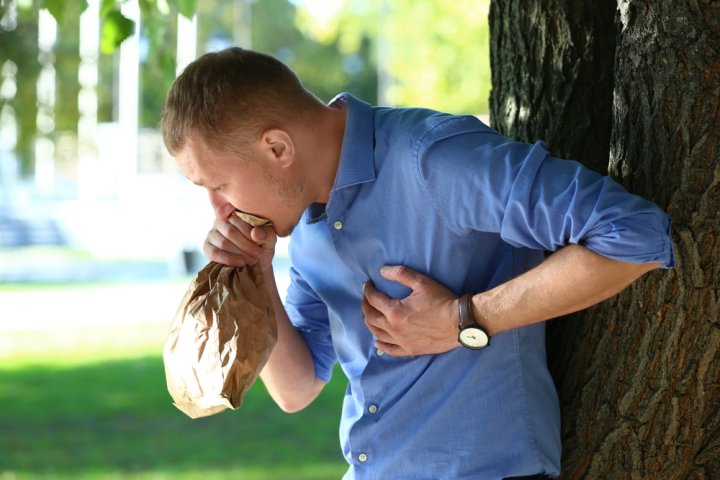



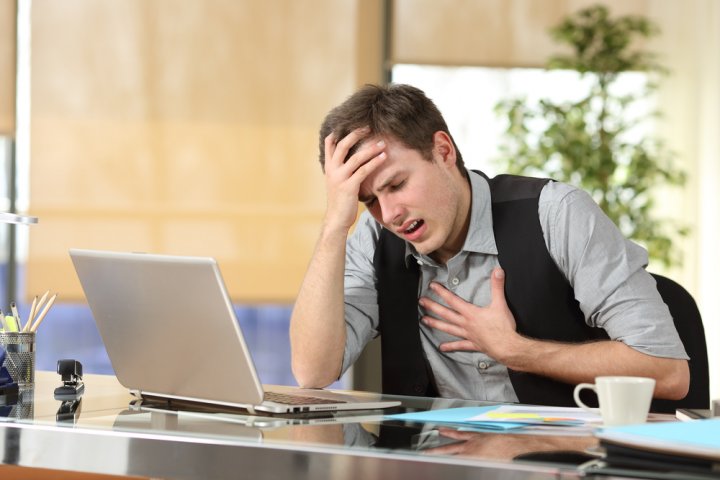

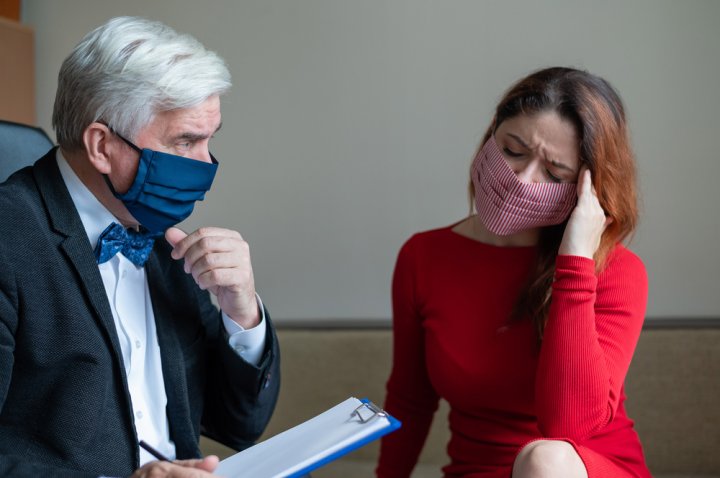

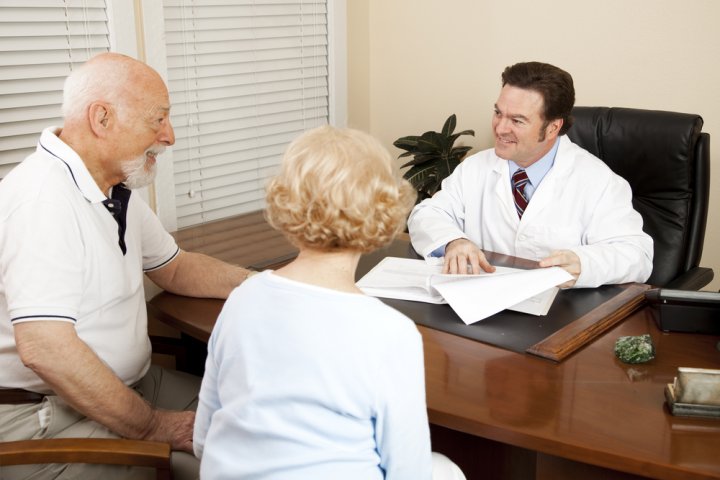



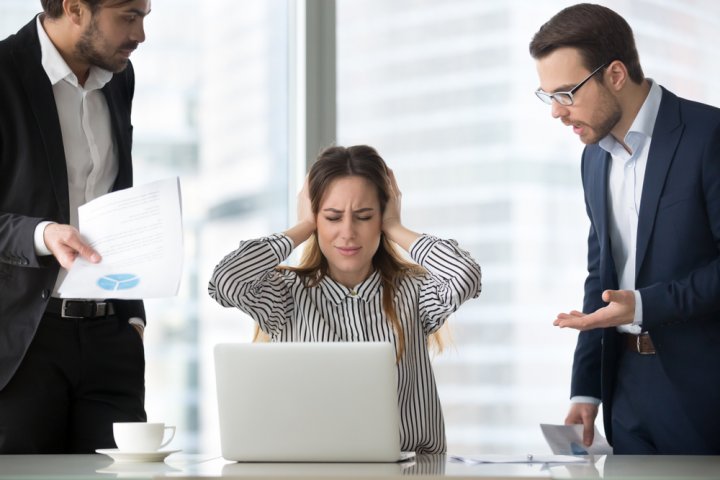

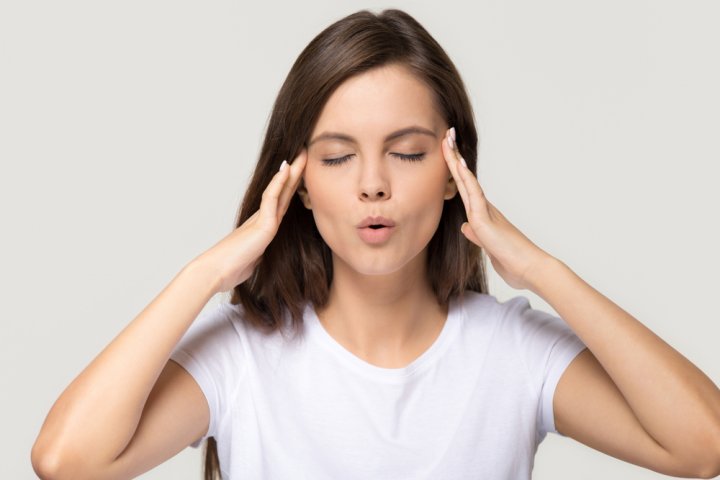
 Highlight the Best Facets of Your Incomparable Beauty: Discover the Best Face Highlighter Currently Available in India and Everything You Need to Know About Using Face Highlighters for Maximum Effect (2023)
Highlight the Best Facets of Your Incomparable Beauty: Discover the Best Face Highlighter Currently Available in India and Everything You Need to Know About Using Face Highlighters for Maximum Effect (2023)
 Forget the Blemishes and Get that Picture Perfect Flawless Radiance on Your Face: Check out the Best Foundations for Oily Skin Currently Available in India and Everything You Need to Know About Makeup Foundations (2023)
Forget the Blemishes and Get that Picture Perfect Flawless Radiance on Your Face: Check out the Best Foundations for Oily Skin Currently Available in India and Everything You Need to Know About Makeup Foundations (2023)
 Make Your Presence Felt Wherever You Go: Discover the Best Perfumes Under 2000 for Both Men and Women to Announce Your Arrival and Make Any Occasion Memorable (2023)
Make Your Presence Felt Wherever You Go: Discover the Best Perfumes Under 2000 for Both Men and Women to Announce Your Arrival and Make Any Occasion Memorable (2023)
 Protect Your Oily Skin from the Harmful Rays of the Sun: Discover the Best Gel Based Sunscreens for Oily Skin and Everything You Need to Know Before Buying One (2023)
Protect Your Oily Skin from the Harmful Rays of the Sun: Discover the Best Gel Based Sunscreens for Oily Skin and Everything You Need to Know Before Buying One (2023)
 Minor Blemishes and Wrinkles Affecting Your Confidence? Check out the Best BB Creams to Conceal Your Worries and Nourish Your Skin to Restore the Healthy, Radiant and Glowing Complexion Back Again (2023)
Minor Blemishes and Wrinkles Affecting Your Confidence? Check out the Best BB Creams to Conceal Your Worries and Nourish Your Skin to Restore the Healthy, Radiant and Glowing Complexion Back Again (2023)
